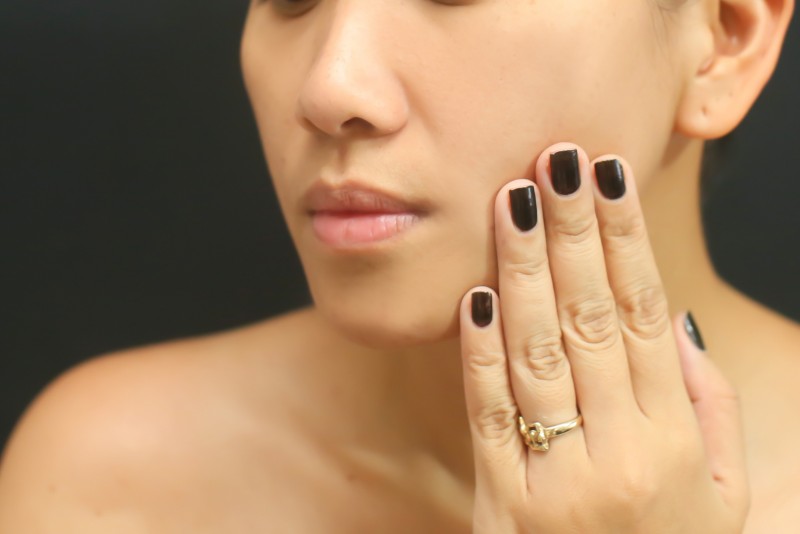
The use of retinol has become increasingly popular these days for keeping the skin young and vibrant. There are several benefits to using retinol, as it helps to reduce fine lines, wrinkles, large pores, and protects the skin from the effects of aging. However, using retinol requires careful consideration to avoid potential harm to the skin. Many people start using retinol without complete information, relying on advertisements or social media, but certain mistakes can lead to skin damage instead of benefits.
When using retinol, it is crucial to exercise caution. If not applied carefully, retinol can leave the skin lifeless instead of radiant, and may even cause other skin problems. Let's explore the essential factors to keep in mind when using retinol.
1. Understand Your Skin's Needs
Retinol, derived from vitamin A, has gained recognition for its ability to address various skin concerns. To optimize its usage, it's essential to identify whether your skin truly requires retinol. This necessitates a closer look at common issues such as fine lines, wrinkles, pigmentation, and enlarged pores.
Skin aging is a natural process, but retinol can effectively mitigate its visible effects. Typically, individuals start considering retinol in their mid-20s, as this is when the first signs of aging become noticeable. Before this age, the skin is generally more resilient, and the use of retinol may not be necessary.
Understanding your skin's specific needs enables a targeted approach. If fine lines are the primary concern, a lower concentration of retinol might suffice, while more advanced aging signs may require a higher potency.
2. Avoid Mixing Vitamin C and Retinol
Vitamin C and retinol are both potent skincare ingredients with distinct benefits. However, using them together can be counterproductive if not done thoughtfully.
Vitamin C is renowned for its antioxidant properties, promoting collagen synthesis and providing protection against environmental damage. On the other hand, retinol enhances cell turnover, reduces fine lines, and stimulates collagen production.
When used concurrently, these ingredients may compete for absorption, leading to potential skin irritation. It's advisable to incorporate them into your routine separately, such as using vitamin C in the morning and retinol at night. This ensures that each ingredient can work optimally without causing unnecessary stress on the skin.
Additionally, be cautious about combining retinol with other active agents, as this may result in skin reactions. A careful and selective approach to skincare product combinations is crucial to avoid adverse effects.
3. Pay Attention to Quantity and Timing
Retinol is a powerful compound, and its efficacy depends on the right application. Initiating the use of retinol with a measured approach is essential to avoid overwhelming the skin.
Begin with a conservative quantity, typically two to three drops, during the initial applications. This allows the skin to acclimate to the ingredient gradually. Overloading the skin with retinol from the outset may lead to irritation and dryness.
The frequency of application is equally important. Starting with once or twice a week is generally recommended, as this gives the skin time to adjust. It's important to note that retinol is best applied at night, as exposure to sunlight can reduce its effectiveness.
As the skin becomes accustomed to retinol, the frequency can be gradually increased. However, any signs of redness, irritation, or discomfort should prompt a reassessment of the usage frequency.
4. Sunscreen and Moisturizer are Essential
One of the critical precautions when using retinol is the consistent application of sunscreen. Retinol increases the skin's sensitivity to sunlight, making it more susceptible to sun damage. Neglecting sunscreen can not only compromise the effectiveness of retinol but also result in adverse effects such as redness and inflammation.
Choose a broad-spectrum sunscreen with a sufficient SPF level and apply it daily, even on cloudy days. This protective measure is vital in preserving the benefits of retinol and maintaining skin health.
Moreover, using a moisturizer alongside retinol is crucial to prevent dryness. Retinol can strip the skin of natural oils, leading to dryness and peeling. A well-formulated moisturizer helps maintain the skin's hydration levels, creating a balanced and nourished complexion.
5. Consult a Dermatologist
Despite its numerous benefits, retinol is not a one-size-fits-all solution. Each individual's skin is unique, and factors such as sensitivity and existing skin conditions play a significant role in how the skin responds to retinol.
If you have sensitive skin or experience adverse reactions to skincare products, consulting a dermatologist is highly advisable. Dermatologists can assess your skin type, recommend appropriate retinol formulations, and provide personalized guidance on usage.
Furthermore, seeking professional advice becomes crucial when incorporating retinol into your routine for the first time or when upgrading to a higher concentration. A dermatologist can conduct a thorough skin analysis, recommend suitable products, and address any concerns or potential side effects.
In conclusion, retinol stands as a powerful ally in the pursuit of youthful and radiant skin. However, its effective use requires a thoughtful and informed approach. Understanding your skin's needs, avoiding ingredient conflicts, and adhering to a carefully curated routine are key aspects of harnessing the benefits of retinol.
By integrating retinol into your skincare regimen with diligence and patience, you can address aging signs while ensuring the health and resilience of your skin. Remember, skincare is a personal journey, and consulting with a dermatologist can provide invaluable insights tailored to your individual needs, ensuring a harmonious relationship between your skin and retinol.